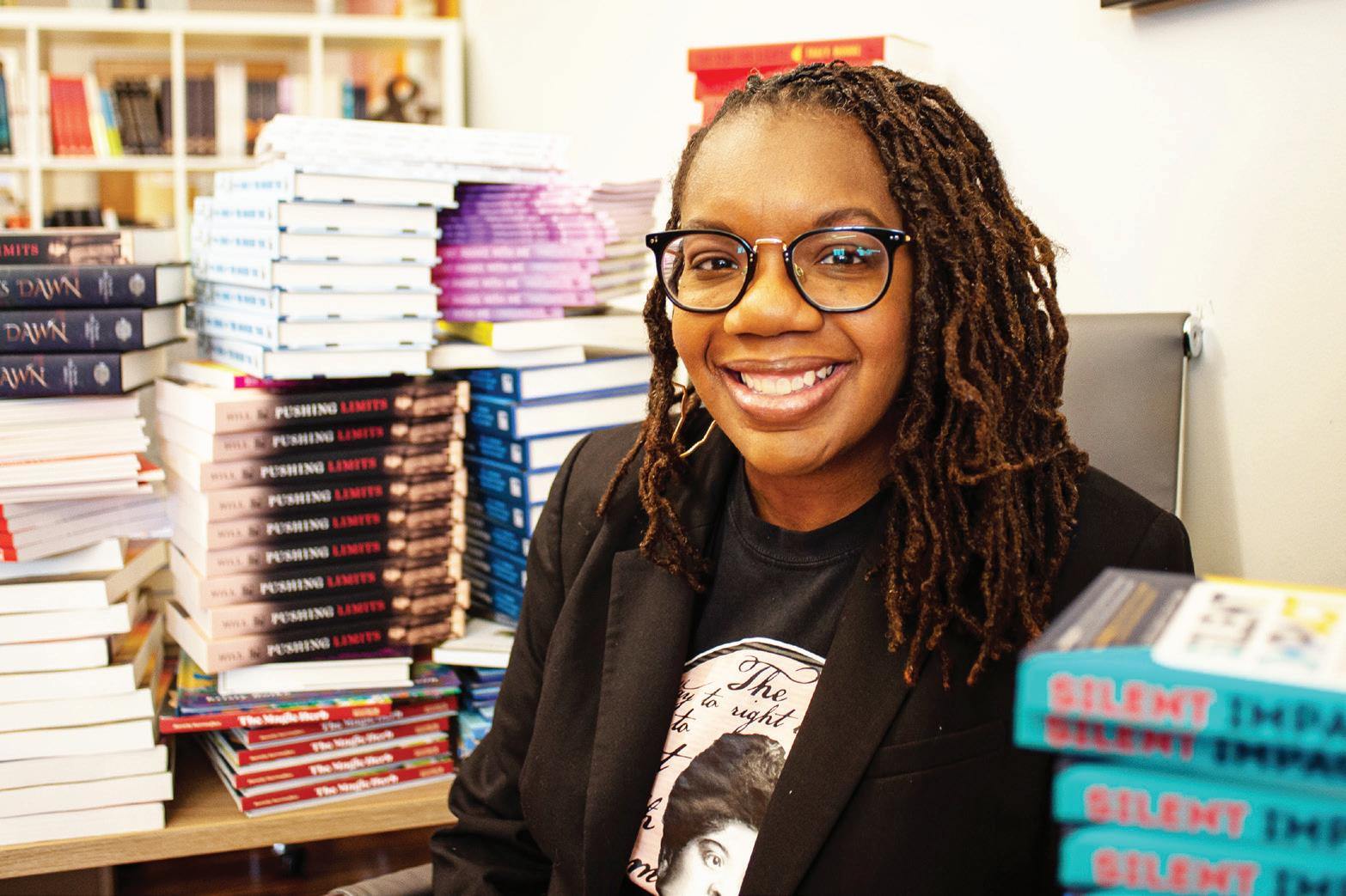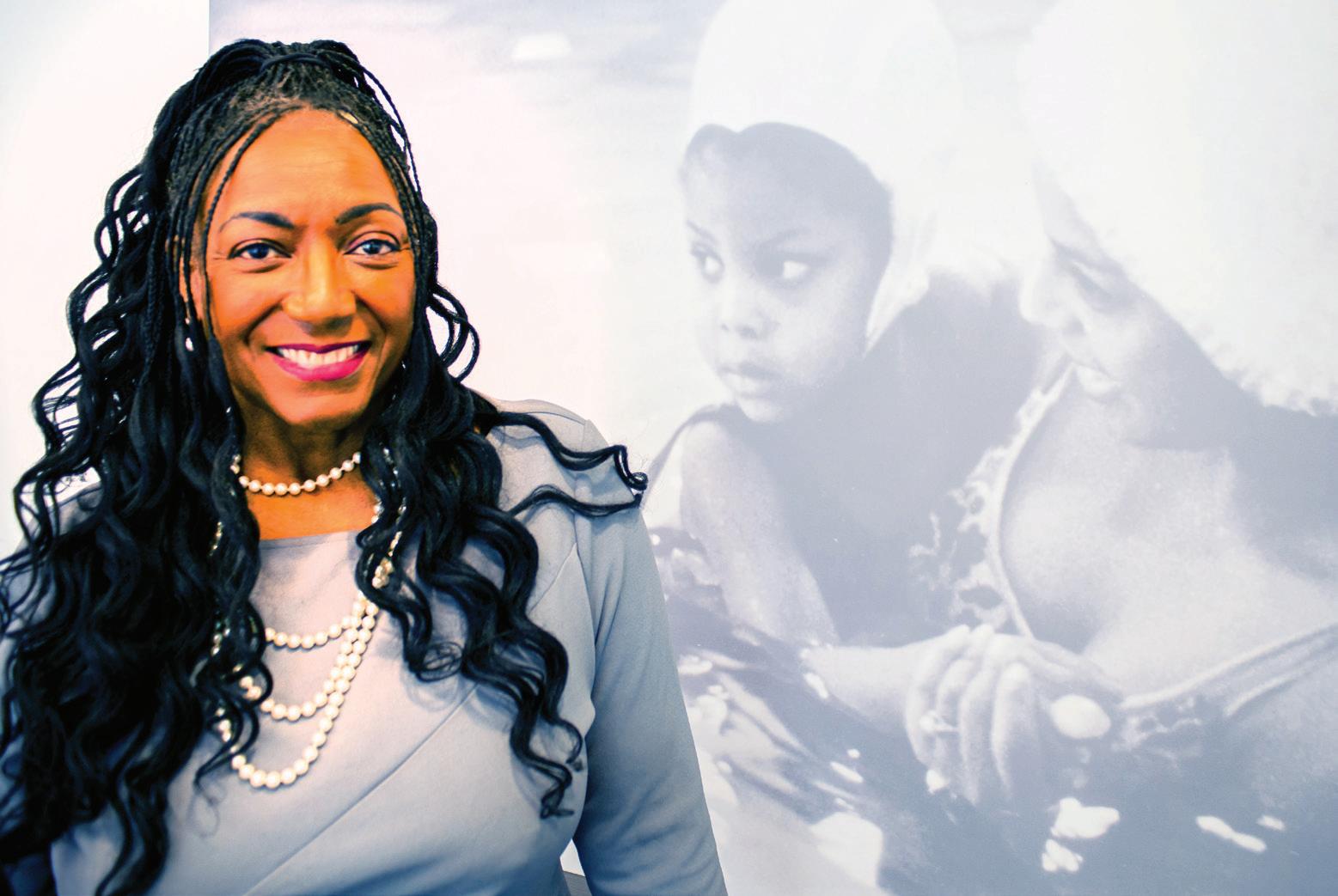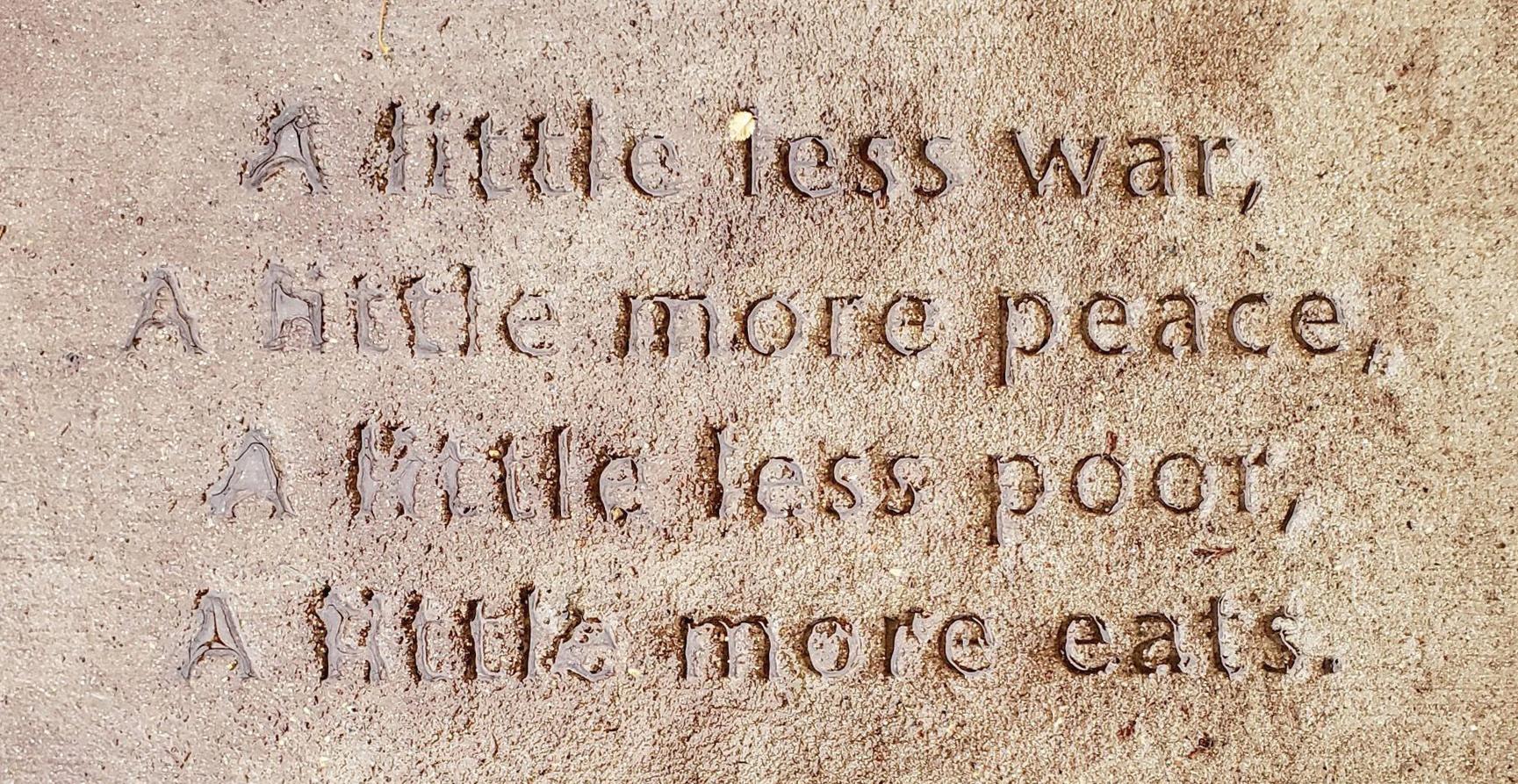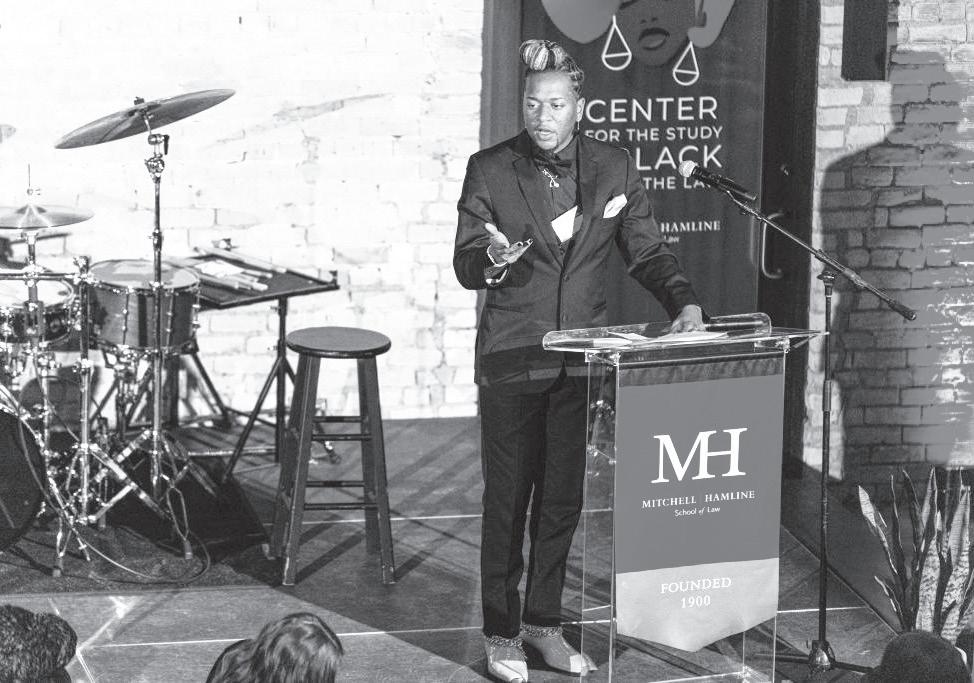
7 minute read
Metro Mitchell Hamline opens new Center for the Study of Black Life and the Law
By Angela Rose Myers
Contributing Writer
In February, Mitchell Hamline School of Law in St. Paul hosted a gala launching the new Center for the Study of Black Life and the Law, and formally introduced the center’s new director, Dr. T. Anansi Wilson. The event highlighted the mission of the center, with speeches from students, affiliated faculty, and representatives from the university.

scholar in the field of Black studies and law, who earned a law degree from Howard University and a Ph.D. from the University of Texas, Austin, in the African and African American studies program.
Asked how the center came about, Dr. Wilson admitted to dreaming of doing this work for over a decade. “I think it was my sophomore year in college at Tufts. I was taking a class with Christina Sharpe, who wrote ‘In the Wake: On women, and how trauma lives long. we’ll see.’ And literally, the announcement of the center last February was the 10-year anniversary of that conversation!”
“And so for our final topic, our final seminar, it was supposed to be some type of project on how trauma in the past has affected us and how we’re living in the wake [of slavery].” Wilson remembered thinking, “I was like, you know, years from now I’m gonna have some type of center that is focusing on the way the law orders and disorders Blackness and Black real life.
The serendipitous moment of seeing Mitchell Hamline recruiting for the director’s role for a new center focused on Black life and the law didn’t mean Wilson was gung-ho about the institution. Black academics have seen White institutions create Black study centers without giving autonomy, adequate funding or proper respect to those centers,” Wilson said. “They’d rather give lip service in order to say they have ‘done something,’ without fully supporting the Black scholars they’ve recruited.”
Wilson made sure to fight for clear boundaries and expectations even while interviewing. “When I was interviewing for the job, one of the things I said was that I wanted to come and be able to do my own thing. I wanted to do something that was explicitly about Black and Black Queer people.
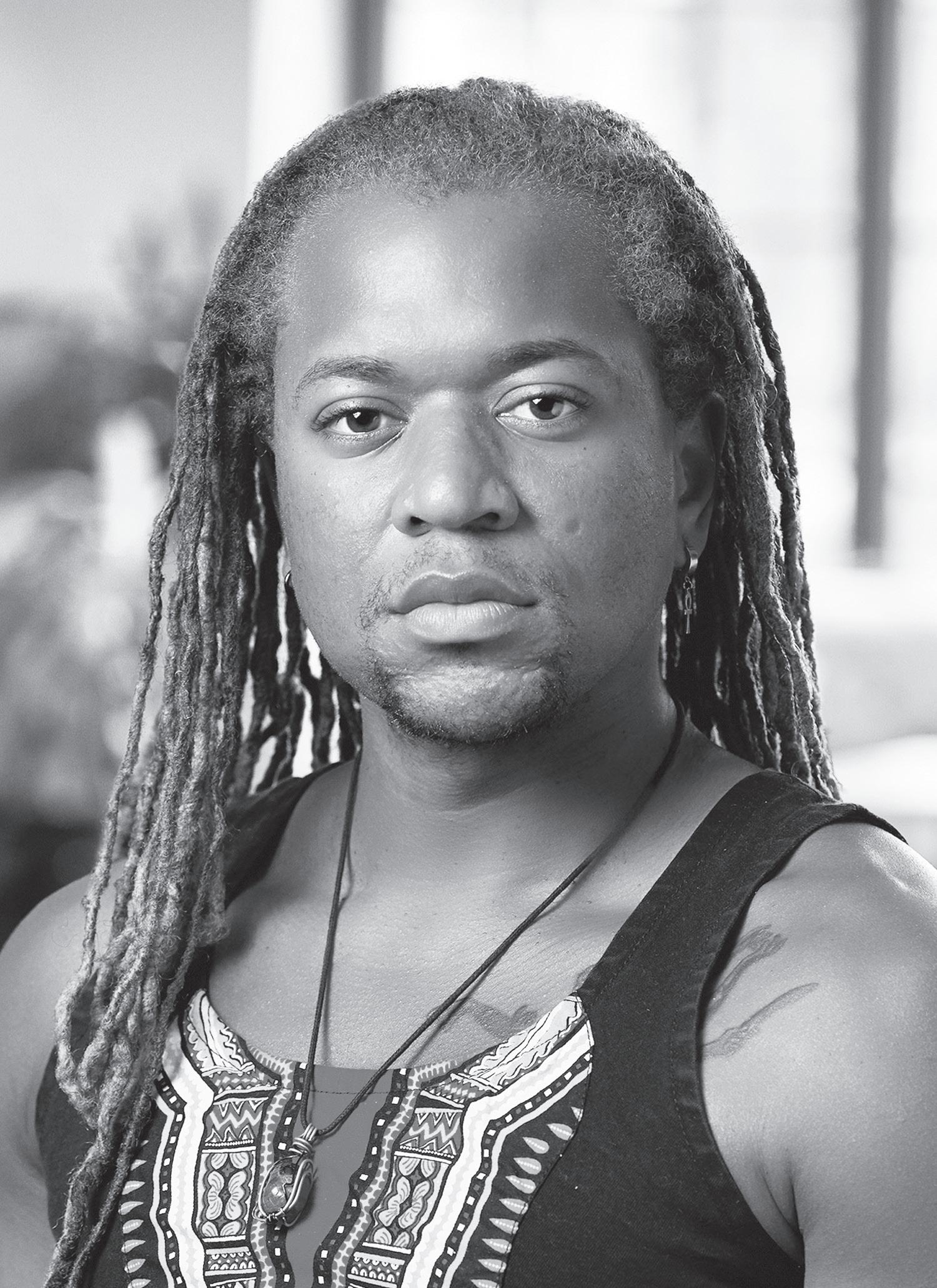
The center’s associate director, Deanna Burns, welcomed guests and expressed the university’s enthusiasm for the center and the leadership of Dr. Wilson, an award-winning
Blackness and Being.’ One of our seminar topics, I think, was the Black feminist theory of memory for forgetting,” recalled Wilson. “But anyway, it was about Black people, Black
“It’s gonna have a policy arm. There’ll be an organizing arm, and I’ll work with artists. [And Dr. Sharpe], she was like, ‘All right. Well, you let me know how that goes in 10 years, and
Velma Gene Warder
Sunrise: August 15, 1931 — Sunset: March 6, 2023 nalism and a minor in art. In the late 60’s she returned to the University and received a B.S. in education. She began her teaching career in 1968, as a first-grade teacher at Kenwood Elementary School.
However, Velma is best remembered as an extraordinary musician. She studied organ, piano and music theory at the MacPhail School of Music. She began playing the piano at Zion as a teenager, then at Sabathani Baptist Church. She took her piano skills everywhere, delighting her students when she played in the classroom.
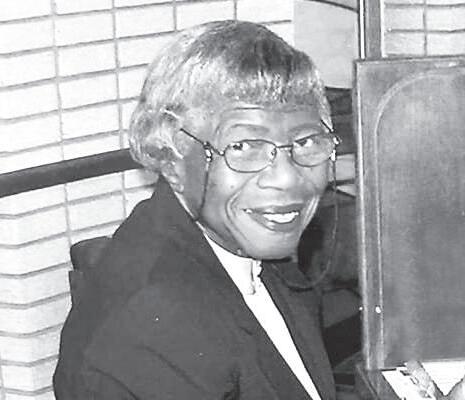
“Because if you don’t put ‘Black’ in the title, it just becomes a racial justice thing, which usually means the Black people get put at the end, or censored, or don’t get explicitly focused on at all,” said Wilson. Mitchell Hamline has since supported Wilson’s vision in the creation of the center, making sure to emphasize that the work will focus on the “study of Black life.” center, Wilson responded, “We have so much going on. Obviously, our launch gala. That’s something we want to do is have an annual fundraising event. But really, [other] events
Hamline is the only Minnesota law school that explicitly names “Black life” as a research center’s focus. Asked if White institutions can fully support truly Black-centered research, Dr. Wilson offers this explanation: “I don’t think about or put trust in institutions. I pay them no mind—good intentions aside. I came here to do good work. That work will be judged by spirit, ancestors, and community, including students, in that order.
That’ll actually be moderated by both the Black law student organization at Harvard and Harvard Law School, as well as ours here at Mitchell Hamline. We’re having this kind of
Velma Gene Warder was born on August 15, 1931, in Minneapolis, the oldest of three children born to Velma Austin and William Wesley Williams. She was the wife of William Warder, sharing 71 years of marriage, mother of three, grandmother of one, and great grandmother of six.
She taught for 25 years in the Minneapolis Public Schools and was a freelance writer, publishing hundreds of articles in music and religious publications.
Velma (Genie) grew up in North Minneapolis, among friends in her close-knit community and would fondly recall those days when her life centered around church activities at Zion Baptist Church (then located on Lyndale Ave. N.), and the Friendship Club at the Phyllis Wheatley House. She attended Franklin Junior High School, where she played basketball, and North High school where she participated in orchestra and was inducted into the National Honor Society. She graduated from North High in 1949.
In 1948, Velma met William Warder, who was recently discharged from the U.S. Army, and they dated for three years. They were married on a snowy Thanksgiving Day in 1951. They lived in South Minneapolis for 64 years, raising three children.
Family meant everything to Velma. She loved being around her family and would do anything for her family. She was kind, giving and thoughtful. She never hesitated to send a note of thanks or encouragement to anyone who needed a lift. She loved playing board games and was a fierce Scrabble player. Most of all, she loved God, and put her faith in Jesus Christ.
In 1951, Velma graduated from the University of Minnesota with a degree in jour-
She was a powerhouse on the organ and took command of 2- and 3-manual pipe organs, working the foot pedals like she was tap dancing. She played everything from Bach, Handel, Chopin and Brahms to Joplin, gospel, spirituals, anthems, Broadway tunes, and even pop. She accompanied numerous vocalists, including her husband William and daughter Cheryl, and performed many recitals of traditional organ literature.
She was a trailblazer in featuring organ music by African-American composers. She also conducted workshops for national conferences in music and Christian education. She was also an active member of the Black Music Educators of the Twin Cities, the Fellowship of American Baptist Musicians, and the American Guild of Organists. She served 23 years as organist at the former Temple Baptist Church in Minneapolis, and retired in 2010 after 26 years as organist at River Hills UMC in Burnsville.
Velma passed away on March 6, 2023, at the age of 91. She was preceded in death by her parents William and Velma Williams, her sister Rauby Brown, and great-grandson Cameron Reeves. She is survived by her husband William; brother, Wallace Williams (Pam); son, Paul Warder (Pam); daughters, Cheryl Warder Reeves and Julie Warder; grandson Kellen Reeves (Michelle); great grandsons Quentin, Zavier, Zaire Reeves, David and Christopher Johnson; and a host of other family members who will cherish memories of Velma.
There will be a celebration of life service at River Hills United Methodist Church in Burnsville on Friday, March 17, at 11 am. Public viewing will be from 10 – 11 am at the church. Burial will follow the service at Fort Snelling.
“I’ll join and struggle with anyone to do good—and that includes not just our community, but good work with our dean and partner Anthony Niedwiecki, and our brilliant faculty and staff. And when good is no longer possible or my time is up here, I’m going to go where my soul is called next.
“We’re off to a good start, but the proof is in the journey, and trust is forged in the crucible. Those things are earned.”
Asked about the initiatives and the upcoming work of the have drawn attention to the unfinished business of Black life, not just in Minnesota, in the Twin Cities, but you know— across the nation and abroad. simultaneous conversation that will be streamed into both classrooms that’s open to the community.”
In March, a joint roundtable conversation between the Center for the Study of Black Life and the Law and Harvard Law and the local economy project is scheduled. “We’re gonna be talking about racial capitalism and its effect on the law’s legal promulgation right now, in the way that it’s enforced both by police but also by bureaucrats, and agencies.
What is the utility of race and racism and anti-blackness in the laws?
“We’re thinking about new and old laws and reform.
In April, the center is going to be partnering with the law review symposium, focusing on Black life in the afterlife of slavery and how those afterlives continue again, according to Wilson. “I keep saying this phrase—how can you order disorder—within Black living and death in focusing on Minnesota, but also think about the greater Midwest and just the Black diaspora in the United States as a whole.
Angela Rose Myers welcomes reader responses to amyers@ spokesman-recorder.com.
By Charles E. Crutchfield III, MD Senior Medical Advisor
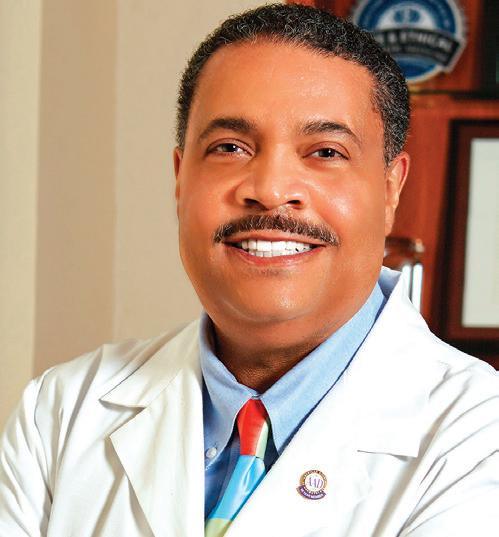

From bath oils and soft drinks to skin creams and coffee bars, everywhere you look, you can see what looks like the next hot product: CBD oil.
CBD, or cannabidiol, oil is a member of the cannabinoid family of molecules found in marijuana and plants closely related to marijuana, such as hemp. Although CBD has been around since the 1940s, CBD’s popularity has dramatically increased along with the legalization of medical and recreational marijuana across the United States. There are over 100 different cannabinoids found in marijuana and hemp plants. CBD and tetrahydrocannabinol (THC) are the most commonly studied cannabinoids. CBD oil is extracted from the buds and flowers of marijuana and related plants, such as hemp. But, unlike THC, which is psychoactive marijuana derivative oil, CBD does not produce a “high” or intoxicated feeling.

CBD does have medicinal benefits, however. Proponents of CBD claim that it can treat a variety of conditions including seizures, pain, anxiety, inflammation, insomnia, acne and oth-




